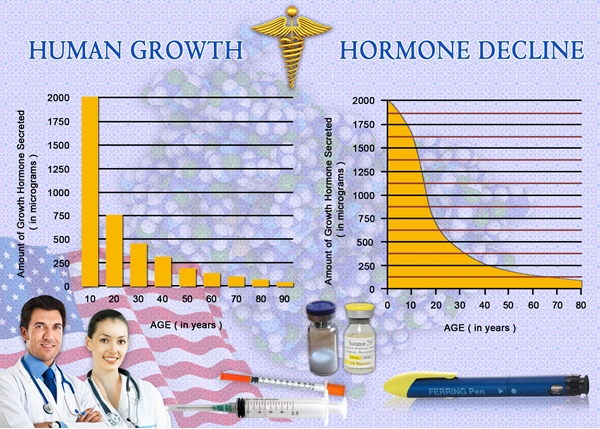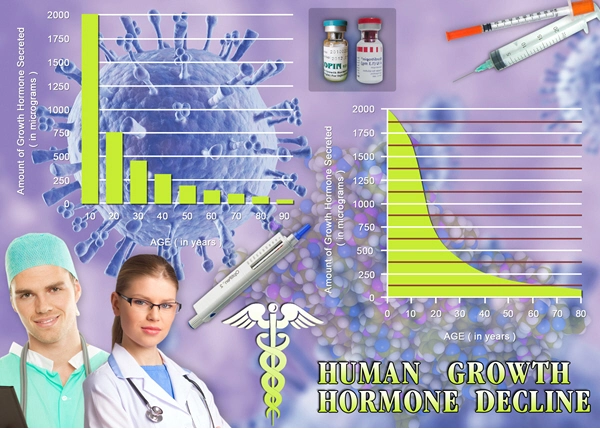Introduction
Hair loss, a condition affecting a significant portion of the American male population, presents not only a cosmetic concern but also a psychological one, impacting self-esteem and quality of life. This article delves into a comparative study that explores the variances in hair loss among different ethnic groups within the United States, highlighting the roles of genetics and environmental factors. Understanding these differences can aid in developing more targeted treatments and preventive strategies.
Prevalence and Patterns of Hair Loss Across Ethnic Groups
Hair loss, scientifically known as androgenetic alopecia, is more prevalent in some ethnic groups than others. Studies indicate that Caucasian men experience hair loss at a higher rate, with up to 80% affected by the age of 70. In contrast, African American men have a lower incidence, with estimates suggesting around 60% experience significant hair thinning by the same age. Asian American men fall somewhere in between, with varying rates depending on specific Asian ethnic subgroups.
Genetic Influences on Hair Loss
Genetics play a crucial role in determining susceptibility to hair loss. The androgen receptor gene, located on the X chromosome, is a key player in the development of androgenetic alopecia. Variations in this gene can lead to differences in hair loss patterns among ethnic groups. For instance, certain polymorphisms in the androgen receptor gene are more common in Caucasians, potentially explaining their higher rates of hair loss. Similarly, specific genetic markers have been identified in African American and Asian American populations that may offer some protection against hair thinning.
Environmental Factors Contributing to Hair Loss
Beyond genetics, environmental factors also significantly influence hair loss. Diet, stress, and exposure to certain chemicals can exacerbate or mitigate the condition. For example, diets rich in vitamins and minerals essential for hair health, such as iron and zinc, may help reduce hair loss. Conversely, high-stress lifestyles, common among American males, can trigger or worsen hair thinning. Additionally, the use of hair products containing harsh chemicals may contribute to hair loss, particularly in African American men who often use styling products that can damage hair follicles.
Cultural Perceptions and Psychological Impact
Cultural attitudes towards hair loss vary across ethnic groups and can influence how men cope with the condition. In some cultures, baldness is seen as a sign of maturity and wisdom, while in others, it is viewed negatively and can lead to significant psychological distress. Understanding these cultural nuances is essential for healthcare providers to offer appropriate support and treatment options.
Advancements in Treatment and Prevention
Recent advancements in hair loss treatment offer hope for American males across all ethnic groups. Medications like finasteride and minoxidil have proven effective in slowing hair loss and promoting regrowth. Additionally, emerging therapies such as low-level laser therapy and platelet-rich plasma injections are gaining popularity for their potential to stimulate hair growth. For those considering surgical options, hair transplant techniques have improved, offering more natural-looking results.
Conclusion
The study of hair loss among American males reveals a complex interplay of genetic and environmental factors, with significant variations across ethnic groups. By understanding these differences, healthcare providers can tailor treatments and preventive measures to better serve their patients. As research continues to uncover the intricacies of hair loss, the future looks promising for effective management and potential reversal of this common condition.
This article underscores the importance of a nuanced approach to hair loss, recognizing the unique challenges and needs of American males from diverse ethnic backgrounds. With continued research and innovation, the battle against hair loss can be fought more effectively, offering hope and improved quality of life for millions of men across the nation.

- Unveiling the Silent Culprit: The Connection Between Scalp Infections and Male Hair Loss in America [Last Updated On: February 25th, 2025] [Originally Added On: February 25th, 2025]
- Exploring Medical Wigs: A Vital Solution for Hair Loss in American Males [Last Updated On: March 1st, 2025] [Originally Added On: March 1st, 2025]
- Examining the Complexities: Unraveling the Medical Implications of Hair Loss [Last Updated On: March 2nd, 2025] [Originally Added On: March 2nd, 2025]
- Understanding the Link Between Thyroid Disorders and Hair Loss: Causes, Diagnosis, and Management [Last Updated On: March 3rd, 2025] [Originally Added On: March 3rd, 2025]
- Advancements in Hair Loss Treatments and Impact on Men's Health [Last Updated On: March 4th, 2025] [Originally Added On: March 4th, 2025]
- Understanding Male Hair Loss: Causes, Diagnosis, and Treatment Options in the US [Last Updated On: March 5th, 2025] [Originally Added On: March 5th, 2025]
- Understanding and Managing Pediatric Male Hair Loss: Causes, Diagnosis, and Treatment [Last Updated On: March 6th, 2025] [Originally Added On: March 6th, 2025]
- Evaluating Over-the-Counter Hair Loss Treatments: Effectiveness and Considerations for Men [Last Updated On: March 7th, 2025] [Originally Added On: March 7th, 2025]
- Comprehensive Guide to Holistic Hair Loss Treatments for American Men's Well-Being [Last Updated On: March 8th, 2025] [Originally Added On: March 8th, 2025]
- Unlocking the Genetics of Hair Loss: Insights, Treatments, and Future Management Strategies [Last Updated On: March 9th, 2025] [Originally Added On: March 9th, 2025]
- Chemotherapy-Induced Hair Loss in American Males: Causes, Coping, and Regrowth Strategies [Last Updated On: March 12th, 2025] [Originally Added On: March 12th, 2025]
- Unraveling the Link Between Stress and Hair Loss in American Males: A Comprehensive Medical Insight [Last Updated On: March 12th, 2025] [Originally Added On: March 12th, 2025]
- Understanding Hormonal Influences on Male Hair Loss: A Comprehensive Guide [Last Updated On: March 13th, 2025] [Originally Added On: March 13th, 2025]
- Debunking Hair Loss Myths: Facts, Causes, and Effective Treatments for American Men [Last Updated On: March 15th, 2025] [Originally Added On: March 15th, 2025]
- Understanding Hair Loss: Types, Causes, and Effective Treatments for American Males [Last Updated On: March 17th, 2025] [Originally Added On: March 17th, 2025]
- Monogenic Hair Loss in American Males: Genetic Insights and Management Strategies [Last Updated On: March 17th, 2025] [Originally Added On: March 17th, 2025]
- Alopecia Universalis: Understanding, Treating, and Coping for American Males [Last Updated On: March 17th, 2025] [Originally Added On: March 17th, 2025]
- Allergies and Hair Loss in American Males: Understanding the Indirect Connection [Last Updated On: March 17th, 2025] [Originally Added On: March 17th, 2025]
- Hair Loss in American Men Linked to Increased Heart Disease Risk: Emerging Evidence [Last Updated On: March 19th, 2025] [Originally Added On: March 19th, 2025]
- Topical Treatments for Hair Loss: Efficacy, Options, and Professional Guidance [Last Updated On: March 19th, 2025] [Originally Added On: March 19th, 2025]
- FDA-Approved Medications: Combatting Hair Loss in American Men [Last Updated On: March 19th, 2025] [Originally Added On: March 19th, 2025]
- Diabetes and Hair Loss: Understanding Causes and Management Strategies for American Men [Last Updated On: March 19th, 2025] [Originally Added On: March 19th, 2025]
- Understanding Male Hair Loss: Genetic, Hormonal, and Lifestyle Factors [Last Updated On: March 20th, 2025] [Originally Added On: March 20th, 2025]
- Hair Loss in American Males: Causes, Surgical Options, and Management Strategies [Last Updated On: March 21st, 2025] [Originally Added On: March 21st, 2025]
- Telogen Effluvium: Causes, Symptoms, and Management in American Men [Last Updated On: March 21st, 2025] [Originally Added On: March 21st, 2025]
- Hair Loss in American Men: Psychological Impacts and Coping Strategies [Last Updated On: March 21st, 2025] [Originally Added On: March 21st, 2025]
- Managing Male Hair Loss During Partner's Pregnancy: Causes and Strategies [Last Updated On: March 22nd, 2025] [Originally Added On: March 22nd, 2025]
- Understanding Hairline Recession: Causes, Impacts, and Treatment Options for American Men [Last Updated On: March 22nd, 2025] [Originally Added On: March 22nd, 2025]
- Innovative Hair Loss Treatments for American Men: Stem Cells, Gene Therapy, and More [Last Updated On: March 22nd, 2025] [Originally Added On: March 22nd, 2025]
- Hair Loss Solutions: Inspiring Case Studies and Treatment Advances for American Men [Last Updated On: March 23rd, 2025] [Originally Added On: March 23rd, 2025]
- Autoimmune Disorders and Hair Loss: Impacts and Treatments for American Males [Last Updated On: March 23rd, 2025] [Originally Added On: March 23rd, 2025]
- Innovative Treatments and Technologies Transforming Hair Loss Solutions for American Males [Last Updated On: March 23rd, 2025] [Originally Added On: March 23rd, 2025]
- Hair Loss in Young Males: Causes, Impacts, and Treatment Options [Last Updated On: March 23rd, 2025] [Originally Added On: March 23rd, 2025]
- Hair Cloning: A Revolutionary Approach to Permanent Hair Loss Solutions [Last Updated On: March 23rd, 2025] [Originally Added On: March 23rd, 2025]
- Aromatherapy for Hair Loss: Exploring Benefits and Limitations for American Males [Last Updated On: March 23rd, 2025] [Originally Added On: March 23rd, 2025]
- Antidepressants and Hair Loss: Insights and Management Strategies for American Males [Last Updated On: March 24th, 2025] [Originally Added On: March 24th, 2025]
- Anemia and Hair Loss in American Men: Causes, Prevalence, and Management Strategies [Last Updated On: March 24th, 2025] [Originally Added On: March 24th, 2025]
- Drug-Induced Hair Loss: Mechanisms, Common Culprits, and Management Strategies [Last Updated On: March 24th, 2025] [Originally Added On: March 24th, 2025]
- Anabolic Steroids and Hair Loss: Mechanisms, Impacts, and Mitigation Strategies in American Males [Last Updated On: March 24th, 2025] [Originally Added On: March 24th, 2025]
- PCOS in Men: Understanding Symptoms, Diagnosis, and Hair Loss Treatment Options [Last Updated On: March 24th, 2025] [Originally Added On: March 24th, 2025]
- Androgenetic Alopecia: Genetic Insights and Emerging Treatments for Hair Loss [Last Updated On: March 24th, 2025] [Originally Added On: March 24th, 2025]
- Strategies to Mitigate Chemotherapy-Induced Alopecia in American Males [Last Updated On: March 24th, 2025] [Originally Added On: March 24th, 2025]
- Medical Hair Loss in American Men: Causes, Impacts, and Holistic Management Strategies [Last Updated On: March 25th, 2025] [Originally Added On: March 25th, 2025]
- Postpartum Hair Loss in American Males: Causes, Symptoms, and Management Strategies [Last Updated On: March 25th, 2025] [Originally Added On: March 25th, 2025]
- Thyroid Disorders and Hair Loss in American Males: Causes, Diagnosis, and Treatment [Last Updated On: March 26th, 2025] [Originally Added On: March 26th, 2025]
- Understanding and Managing Male Hair Loss in Aging American Men [Last Updated On: March 26th, 2025] [Originally Added On: March 26th, 2025]
- Shock Loss After Hair Transplant: Understanding and Managing Temporary Hair Loss in American Males [Last Updated On: March 26th, 2025] [Originally Added On: March 26th, 2025]
- Male Pattern Baldness: Advances in Treatment and Future Prospects [Last Updated On: March 26th, 2025] [Originally Added On: March 26th, 2025]
- Diagnosing Hair Loss in American Men: Traditional and Advanced Techniques [Last Updated On: March 26th, 2025] [Originally Added On: March 26th, 2025]
- Trichotillomania in American Males: Understanding, Impact, and Treatment Options [Last Updated On: March 26th, 2025] [Originally Added On: March 26th, 2025]
- LLLT: A Promising Non-Invasive Solution for Hair Loss in American Males [Last Updated On: March 26th, 2025] [Originally Added On: March 26th, 2025]
- Anabolic Steroids and Hair Loss: Risks, Mechanisms, and Mitigation Strategies [Last Updated On: March 26th, 2025] [Originally Added On: March 26th, 2025]
- Hair Extensions and Permanent Hair Loss: Risks for American Males [Last Updated On: March 26th, 2025] [Originally Added On: March 26th, 2025]
- Hair Dyes and Hair Loss in American Males: Current Insights and Precautions [Last Updated On: March 26th, 2025] [Originally Added On: March 26th, 2025]
- Hair Follicle Miniaturization: Causes, Symptoms, and Treatments for American Males [Last Updated On: March 26th, 2025] [Originally Added On: March 26th, 2025]
- Immune System Disorders and Hair Loss in American Males: Causes and Treatments [Last Updated On: March 27th, 2025] [Originally Added On: March 27th, 2025]
- AI Revolutionizes Male Pattern Baldness Treatment: Personalized, Effective Solutions [Last Updated On: March 27th, 2025] [Originally Added On: March 27th, 2025]
- Vitamin Deficiencies and Hair Loss: Insights for American Men's Hair Health [Last Updated On: March 27th, 2025] [Originally Added On: March 27th, 2025]
- Post-COVID Hair Loss: Causes, Symptoms, and Management Strategies for American Males [Last Updated On: March 27th, 2025] [Originally Added On: March 27th, 2025]
- Hair Loss in American Males: Societal Views vs. Medical Facts and Holistic Management [Last Updated On: March 27th, 2025] [Originally Added On: March 27th, 2025]
- PRP Therapy: A Promising Non-Surgical Solution for Hair Loss in American Men [Last Updated On: March 27th, 2025] [Originally Added On: March 27th, 2025]
- Rogaine: Benefits, Risks, and Considerations for American Men's Hair Loss Treatment [Last Updated On: March 28th, 2025] [Originally Added On: March 28th, 2025]
- Hair Loss in American Males: Causes, Diagnosis, and Comprehensive Management Strategies [Last Updated On: March 28th, 2025] [Originally Added On: March 28th, 2025]
- Scalp Psoriasis and Hair Loss: Impacts and Management for American Males [Last Updated On: March 29th, 2025] [Originally Added On: March 29th, 2025]
- High Blood Pressure and Hair Loss: Insights for American Males [Last Updated On: March 30th, 2025] [Originally Added On: March 30th, 2025]
- Efficacy of Hair Loss Shampoos for American Men: Benefits and Limitations [Last Updated On: April 1st, 2025] [Originally Added On: April 1st, 2025]
- Menopause and Hair Loss in American Males: Understanding Andropause and Treatment Options [Last Updated On: April 3rd, 2025] [Originally Added On: April 3rd, 2025]
- Stem Cell Therapy: A Breakthrough in Treating Male Pattern Baldness [Last Updated On: April 3rd, 2025] [Originally Added On: April 3rd, 2025]
- Hair Loss in American Men: Psychological Impacts and Holistic Management Strategies [Last Updated On: April 5th, 2025] [Originally Added On: April 5th, 2025]
- Hair Loss After Weight Loss Surgery: Causes, Impacts, and Management for American Males [Last Updated On: April 6th, 2025] [Originally Added On: April 6th, 2025]
- Understanding Central Centrifugal Cicatricial Alopecia in American Males: Symptoms, Causes, and Management [Last Updated On: April 7th, 2025] [Originally Added On: April 7th, 2025]
- Hair Breakage vs. Loss: Causes, Differences, and Care for American Males [Last Updated On: April 7th, 2025] [Originally Added On: April 7th, 2025]
- Hair Loss and Mental Health: Navigating Psychological Impacts for American Men [Last Updated On: April 8th, 2025] [Originally Added On: April 8th, 2025]
- Minoxidil for American Men: Understanding, Using, and Maximizing Hair Regrowth [Last Updated On: April 8th, 2025] [Originally Added On: April 8th, 2025]
- Nutrition's Role in Combating Hair Loss: A Guide for American Men [Last Updated On: April 9th, 2025] [Originally Added On: April 9th, 2025]
- Protein Shakes and Hair Loss: A Comprehensive Guide for American Men [Last Updated On: April 9th, 2025] [Originally Added On: April 9th, 2025]
- GI Health and Hair Loss: Understanding the Link in American Males [Last Updated On: April 10th, 2025] [Originally Added On: April 10th, 2025]
- Lifestyle Changes to Combat Hair Loss in American Men: Diet, Stress, and Exercise [Last Updated On: April 11th, 2025] [Originally Added On: April 11th, 2025]
- Smoking and Hair Loss: Mechanisms, Evidence, and Preventive Strategies for American Males [Last Updated On: April 12th, 2025] [Originally Added On: April 12th, 2025]
- Weight Loss Diets and Hair Loss: Insights and Strategies for American Males [Last Updated On: April 13th, 2025] [Originally Added On: April 13th, 2025]



List of USA state clinics - click a flag below for blood testing clinics.
Word Count: 598


















































